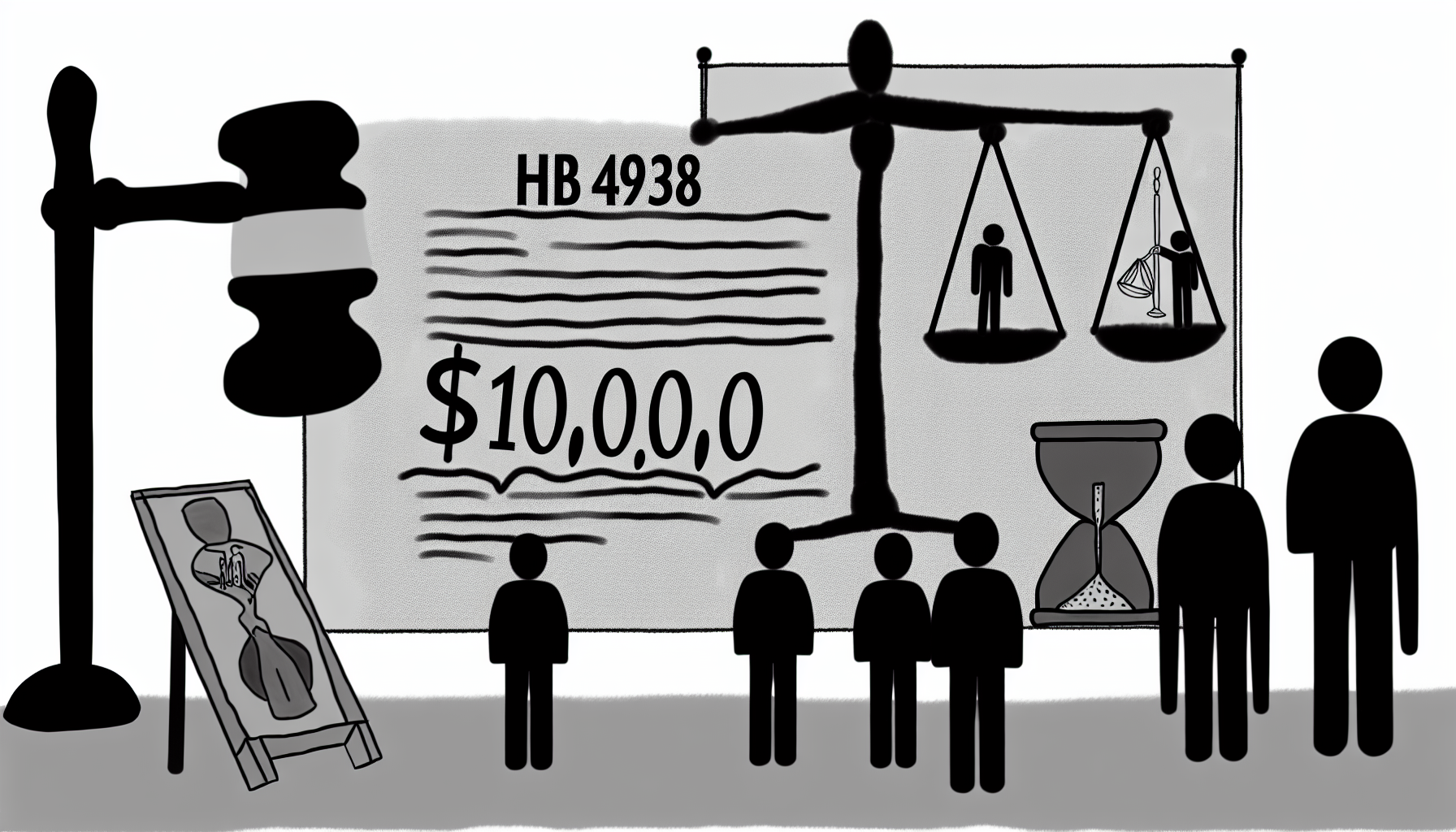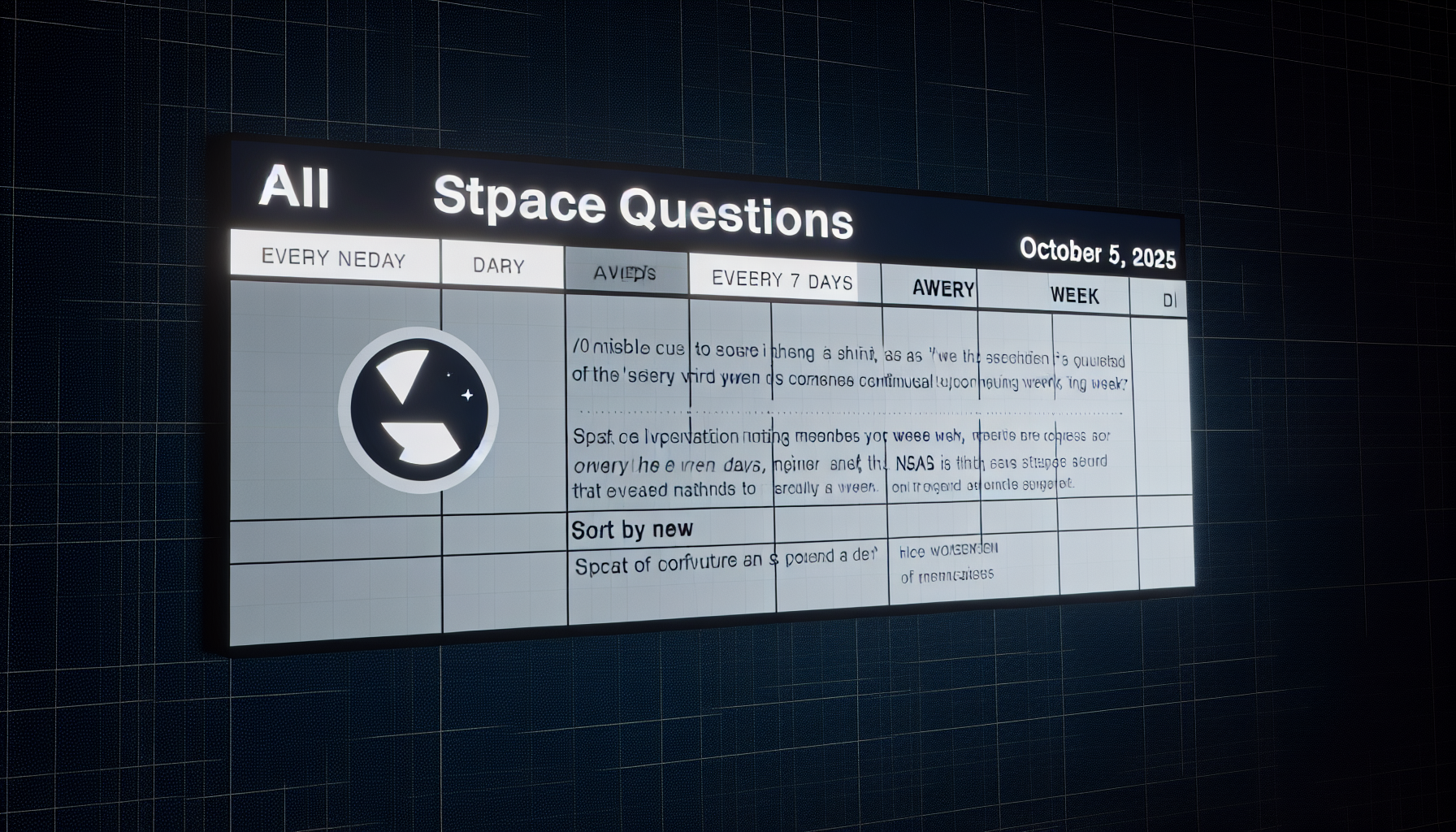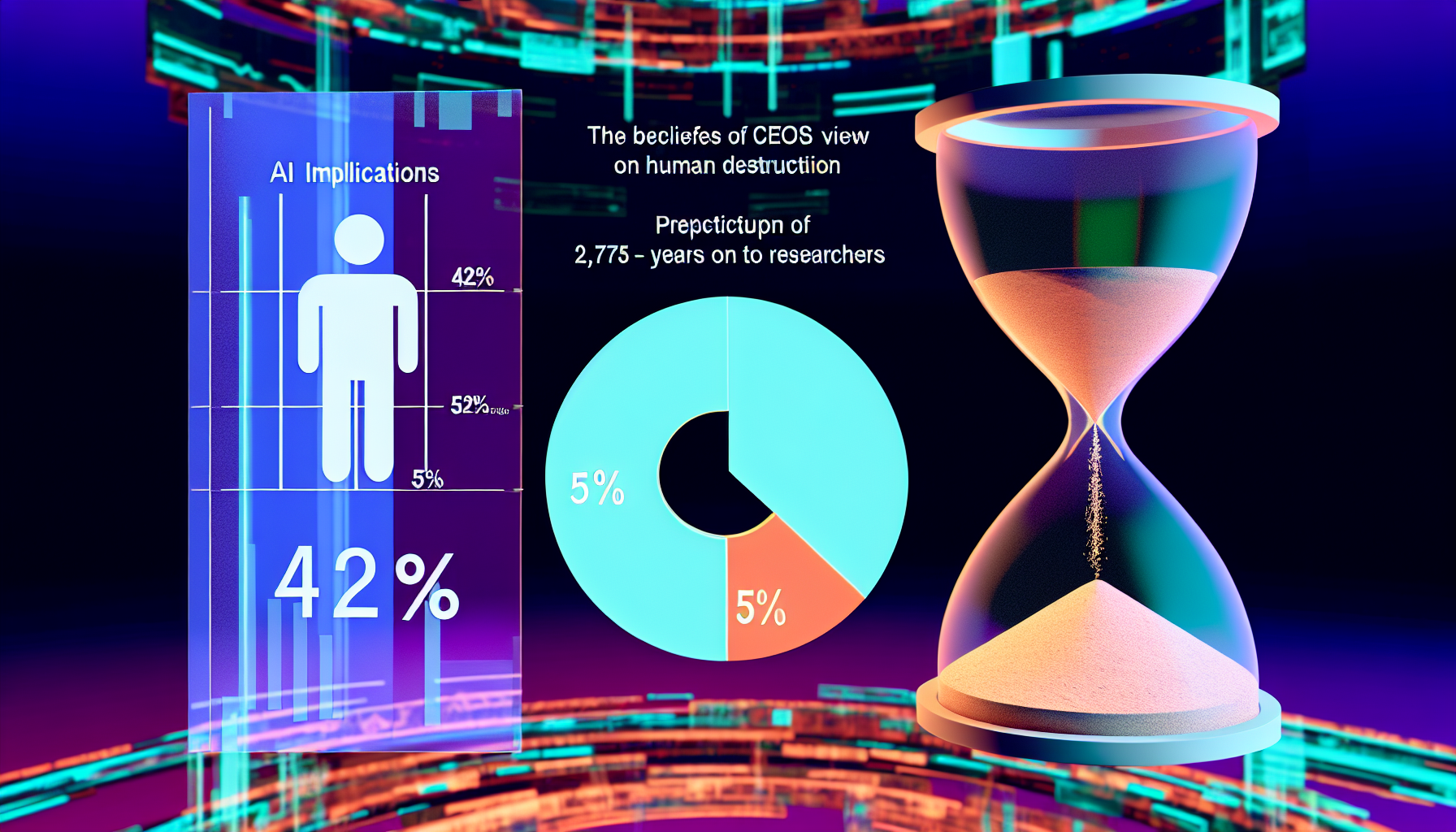Michigan Republicans have introduced a sweeping porn ban that would criminalize wide swaths of online sexual content and impose penalties of up to 20 years in prison and $100,000 in fines for distribution. [1] The proposal, House Bill 4938, explicitly targets material showing a “disconnection between biology and gender,” a clause that would restrict transgender representations and gender-imitating portrayals. [3] Introduced in March 2025 with five GOP co-sponsors, the measure marks one of the most expansive state efforts to regulate pornography online. [1]
Key Takeaways
– Shows HB 4938 sets maximum penalties of 20 years imprisonment and $100,000 fines for distributing prohibited material online statewide. [1] – Reveals five Republican co-sponsors backed the March 2025 introduction, signaling organized caucus support for the sweeping statewide porn ban. [1] – Demonstrates HB 4938 covers real, animated, written, auditory, and AI depictions, including erotic ASMR and any characters resembling minors. [3] – Indicates HB 4938 Section B bans material showing “disconnection between biology and gender,” targeting transgender portrayals imitating the other sex. [3] – Suggests enforcement faces hurdles: MSP said they don’t “enforce the internet,” while 19 states instead require age verification for porn sites. [5]
What Michigan’s porn ban would criminalize
The bill, titled the “Anticorruption of Public Morals Act,” defines prohibited pornography broadly, spanning “real, animated, digitally generated, written, or auditory” depictions of sexual acts. [1] The draft text enumerates banned content including intercourse, masturbation, AI-generated sexual content, erotic ASMR, and any depiction of characters that resemble minors. [3] In a notable provision, Section B bans material that “includes a disconnection between biology and gender,” described as an individual of one biological sex imitating, depicting, or representing themself as the other. [3]
Supporters frame the measure as a response to perceived social harms and argue it updates state obscenity enforcement for the digital era. [2] The proposal departs from narrower age-gating models by moving toward outright criminalization of producing or distributing broad categories of sexual content online. [1] Publishers, platforms, and creators could be impacted across multiple media types, including text-based erotica and audio productions, in addition to images and video. [3]
Penalties and enforcement under the porn ban
HB 4938 prescribes penalties of up to 20 years’ imprisonment and fines up to $100,000 for violating its distribution provisions, creating a felony-scale deterrent. [1] Separate reporting emphasizes the bill’s classification of violations as felonies and calls to intensify enforcement of online obscenity laws. [2] The initiative also contemplates real-time moderation obligations to keep prohibited material off platforms, significantly increasing compliance demands if enacted. [1]
Enforcement feasibility has already surfaced as a question. In March reporting, the Michigan State Police were cited as saying they do not enforce “the internet,” underscoring jurisdictional and practical challenges. [5] While numerous states have adopted verification regimes that attempt to cordon off adult content to users above a set age, Michigan’s proposal would criminalize distribution regardless of age gate compliance. [5] This represents a qualitatively different enforcement posture—moving from access control to prohibition and felony liability. [2]
Scope, exclusions, and definitional risks
The bill’s definitions are both expansive and specific, pulling in everything from explicit physical acts to AI-synthesized material and even auditory erotica. [3] The draft text includes exclusions and definitional sections typical of criminal statutes, but the breadth of covered formats suggests a wide compliance footprint. [3] Requiring “real-time” moderation implies continuous monitoring, which is technologically complex at state-level scale given the volume and velocity of user-generated content. [1]
The clause addressing “disconnection between biology and gender” could create additional definitional risks, because it implicates depictions where an individual presents as a gender different from their sex assigned at birth. [3] Under the draft language, content portraying gender transition or gender-affirming presentation could be swept in if it is deemed to “imitate” the other sex in a sexual context. [3] That clause positions Michigan’s proposal at the intersection of obscenity law and debates over transgender representation. [3]
Political pathway and sponsors’ rationale
HB 4938 was introduced in March 2025 by Rep. Josh Schriver with five Republican co-sponsors, signaling a coordinated push inside the caucus. [1] Schriver and supporters argue a comprehensive ban is necessary to protect children, marriages, and public morality, while urging the state to “pull the plug” on internet pornography. [5] They have linked pornography to broader social harms and expressed a desire to revive or strengthen online obscenity enforcement mechanisms. [2]
MIRS, which first detailed the coming introduction on March 4, reported Schriver pressing for “BAN PORN” measures even as he acknowledged practical enforcement questions. [5] Those questions echo long-running challenges: whether state law can effectively govern global platforms and whether platforms can sustainably filter content at the speeds users upload and share. [5] The bill’s rollout ensures those operational issues will feature in any committee deliberations if the measure advances. [1]
How the proposal targets transgender content
Beyond the conventional obscenity list, HB 4938’s Section B bans material that “includes a disconnection between biology and gender,” defined as one biological sex imitating the other. [3] In practice, that targets content with transgender portrayals or gender-imitating representations, even if otherwise lawful, when framed within sexual or erotic depictions. [3] News coverage highlighted that this language goes beyond typical age-gating or explicit-act bans by focusing on gender presentation within sexual content. [1]
This framing makes HB 4938 an outlier among state approaches, adding a gender presentation criterion to what counts as prohibited sexual material. [3] Such a provision, if enacted and enforced, would likely affect a wide range of creators and publishers whose content includes transgender actors, characters, or narratives. [3] The clause is central to the bill’s novelty—and to the criticism it has attracted from civil liberties and LGBTQ advocates in wider public debate. [1]
Intersection with AI and prior Michigan tech legislation
Michigan’s legislative attention to AI-generated sexual content predates HB 4938. In February 2024, lawmakers examined political deepfake rules and considered separate regulation of explicit AI imagery. [4] Axios reported that Rep. Penelope Tsernoglou pushed disclaimers for political deepfakes and explored ways to curb AI-generated sexual images, indicating bipartisan concern over synthetic content abuses. [4] HB 4938 folds AI into a broader prohibition, banning AI-generated sexual depictions alongside traditional formats. [3]
That integration reflects a trend: as generative tools lower barriers to creating explicit material, lawmakers increasingly seek to bring synthetic content within existing or new criminal frameworks. [4] HB 4938 goes further by treating AI sexual content not simply as a labeling or consent problem but as contraband when distributed in Michigan. [3] This situates AI porn within the same felony-penalty regime as other formats under the bill’s approach. [1]
Michigan’s porn ban in national context
Across the U.S., 19 states have adopted age-verification statutes compelling porn sites to confirm users are adults, favoring access restrictions over criminal prohibitions. [5] Michigan’s HB 4938 diverges by proposing a statewide distribution ban backed by felony penalties for violations. [2] It also sets a maximum sentence of 20 years’ imprisonment and a possible $100,000 fine, magnitudes beyond civil penalties often seen in verification laws. [1]
Additionally, HB 4938 would require real-time moderation of online content, imposing continuous screening expectations not typically found in age-gating regimes. [1] The Michigan State Police’s observation that they do not enforce “the internet” underscores friction between ambitious state policies and cross-border digital platforms. [5] That tension could shape compliance strategies and the state’s posture in potential enforcement actions if the bill were enacted. [5]
What happens next in Lansing
With introduction in March 2025, the bill awaits the standard committee process, hearings, and potential amendments before any floor consideration. [1] Supporters have framed the measure as a necessary moral stand, while opponents and industry observers are likely to focus on speech, practical enforcement, and interstate commerce impacts. [2] Whether the measure advances may depend on how lawmakers reconcile its sweeping scope with technical realities and the state’s enforcement capacity. [5]
If scheduled, hearings would test the bill’s definitions, the reach of the “biology and gender” clause, and the feasibility of real-time moderation across large platforms. [1] The age-verification path chosen by 19 states will likely be presented as an alternative model during testimony, highlighting the contrast between access restrictions and prohibition. [5] Michigan’s debate will thereby serve as a national bellwether for how far states can, or will, go to criminalize online sexual content in the AI era. [4]
Sources:
[1] CBS Detroit – Michigan GOP bill aims to ban pornography online, including content on “disconnection between biology and gender”: www.cbsnews.com/detroit/news/michigan-republican-bill-aims-to-ban-pornography-online/” target=”_blank” rel=”nofollow noopener noreferrer”>https://www.cbsnews.com/detroit/news/michigan-republican-bill-aims-to-ban-pornography-online/
[2] FOX 2 Detroit – ‘It’s killing our morality’: Michigan Republican on why he introduced statewide porn ban: https://www.fox2detroit.com/news/its-killing-our-morality-michigan-republican-why-he-introduced-statewide-porn-ban [3] LegiScan – Michigan 2025 HB4938 – Introduced (full bill text): https://legiscan.com/MI/text/HB4938/id/3268710/Michigan-2025-HB4938-Introduced.html
[4] Axios Detroit – Author of Michigan’s deepfake bill wants to also ban AI porn: www.axios.com/local/detroit/2024/02/23/author-michigan-deep-fake-bill-ban-ai-porn” target=”_blank” rel=”nofollow noopener noreferrer”>https://www.axios.com/local/detroit/2024/02/23/author-michigan-deep-fake-bill-ban-ai-porn [5] MIRS – Schriver Looks To Pull The Plug On Internet Pornography: https://home.mirs.news/post/schriver-looks-to-pull-the-plug-on-internet-pornography
Image generated by DALL-E 3











Leave a Reply